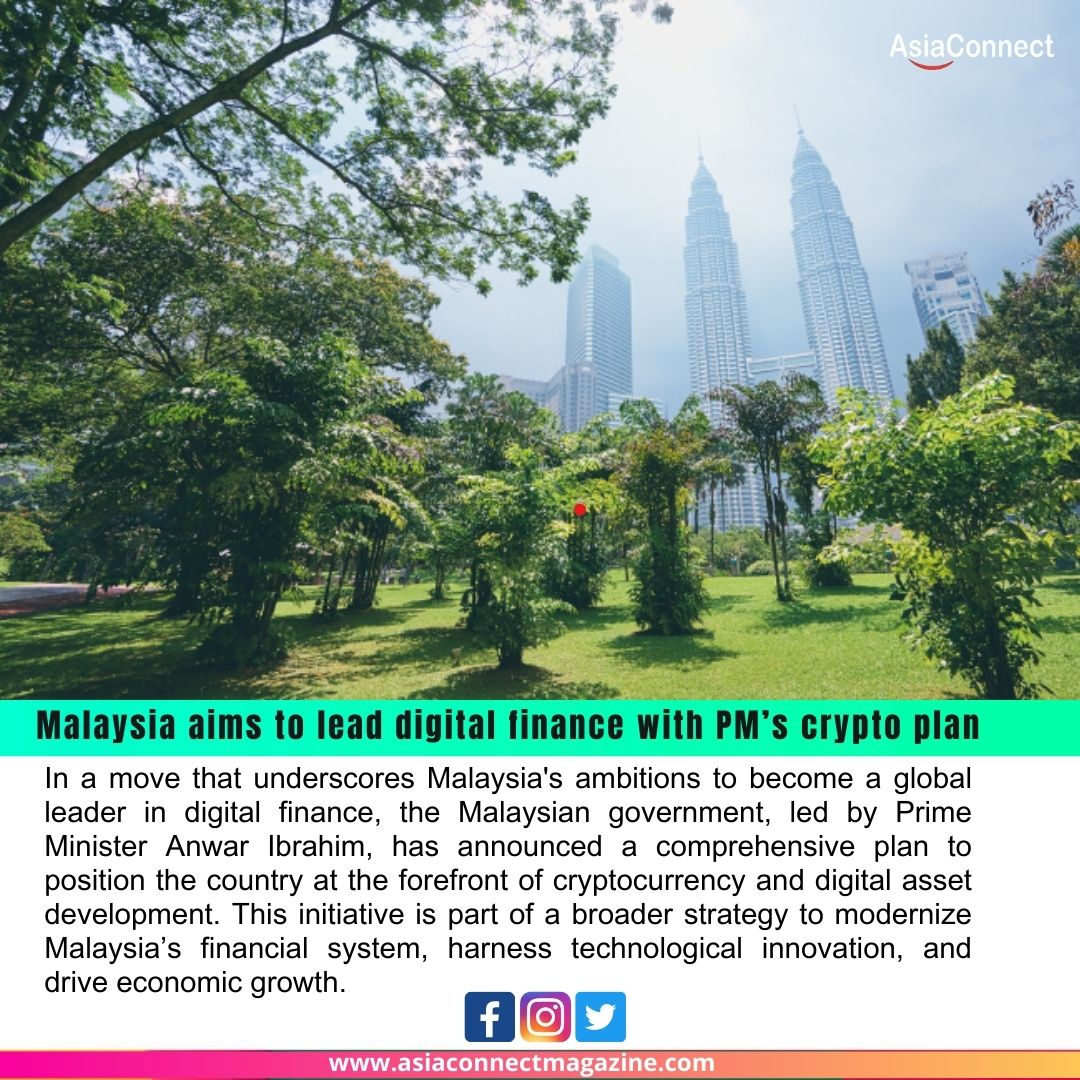In a move that underscores Malaysia’s ambitions to become a global leader in digital finance, the Malaysian government, led by Prime Minister Anwar Ibrahim, has announced a comprehensive plan to position the country at the forefront of cryptocurrency and digital asset development. This initiative is part of a broader strategy to modernize Malaysia’s financial system, harness technological innovation, and drive economic growth. Since 2019, the country has been laying the groundwork for a digital finance revolution, with the Securities Commission (SC) playing a pivotal role in shaping the regulatory framework for digital assets.
A Vision for the Future of Digital Finance
Malaysia’s vision for digital finance is aimed at making the country a hub for cryptocurrency and digital asset innovation in Southeast Asia. Prime Minister Anwar Ibrahim’s announcement highlights the government’s commitment to adopting cutting-edge technologies that can potentially transform Malaysia’s economy, improve financial inclusivity, and position the country as a key player in the global digital finance ecosystem.
The government’s plan emphasizes the need for a well-regulated and transparent environment that fosters innovation while ensuring investor protection and financial system stability. By embracing digital finance, Malaysia hopes to attract investment, create new economic opportunities, and generate jobs in emerging sectors. This vision aligns with the global trend of countries adopting cryptocurrency and blockchain technology as part of their national economic strategies.
The Role of the Securities Commission (SC)
Since 2019, Malaysia’s Securities Commission (SC) has been working diligently to develop a robust regulatory framework for digital assets. The SC has introduced regulations aimed at fostering the growth of the cryptocurrency market while ensuring compliance with anti-money laundering (AML) and counter-terrorism financing (CTF) measures. These regulations are designed to protect investors, enhance market transparency, and mitigate risks associated with digital asset trading.
Under the SC’s guidance, Malaysia has implemented a licensing system for digital asset exchanges, ensuring that these platforms adhere to strict governance standards. The SC has also taken a proactive approach to educating the public and market participants about the risks and benefits of digital assets, with a focus on building trust in the market.
The regulator’s approach to digital asset oversight has made Malaysia one of the more forward-thinking countries in the region when it comes to cryptocurrency regulation. This strategic regulatory framework is expected to continue evolving, as the government and the SC monitor global trends and adapt their policies accordingly to maintain a competitive edge in digital finance.
Encouraging Innovation and Attracting Investment
The Malaysian government’s digital finance plan is designed to create a conducive environment for fintech startups, entrepreneurs, and global investors. By positioning the country as a hub for digital finance, Malaysia aims to attract investment from cryptocurrency companies, blockchain developers, and digital asset exchanges, which could boost the local economy and create high-value jobs.
Moreover, Malaysia’s push to lead in digital finance is expected to have a ripple effect on other sectors, including banking, insurance, and payments. The use of blockchain technology and cryptocurrencies in various financial services could streamline processes, reduce costs, and improve customer experiences. The government’s efforts are also focused on fostering partnerships between traditional financial institutions and digital asset innovators to accelerate the adoption of blockchain technology.
The Path Ahead: Challenges and Opportunities
While Malaysia’s plan to lead in digital finance is ambitious, it comes with its own set of challenges. The country will need to continue developing its regulatory framework to keep pace with rapid advancements in blockchain and cryptocurrency technology. Additionally, Malaysia must address potential concerns around security, privacy, and consumer protection to ensure that the growth of the digital asset market does not lead to financial instability or fraud.
Nevertheless, Malaysia’s strategic focus on digital finance represents a significant opportunity for the country to take the lead in the rapidly growing global market for digital assets. By nurturing innovation, attracting investment, and building a secure regulatory environment, Malaysia is poised to become a leader in the digital finance space in Southeast Asia and beyond.
Conclusion
Malaysia’s commitment to embracing cryptocurrency and digital assets marks an exciting chapter in the country’s economic development. With the government’s plan and the Securities Commission’s efforts to establish a solid regulatory framework, Malaysia is taking bold steps toward becoming a global leader in digital finance. As the country continues to adapt to the evolving landscape of digital finance, Malaysia’s role in shaping the future of cryptocurrency, blockchain, and fintech in Southeast Asia is poised to grow.





